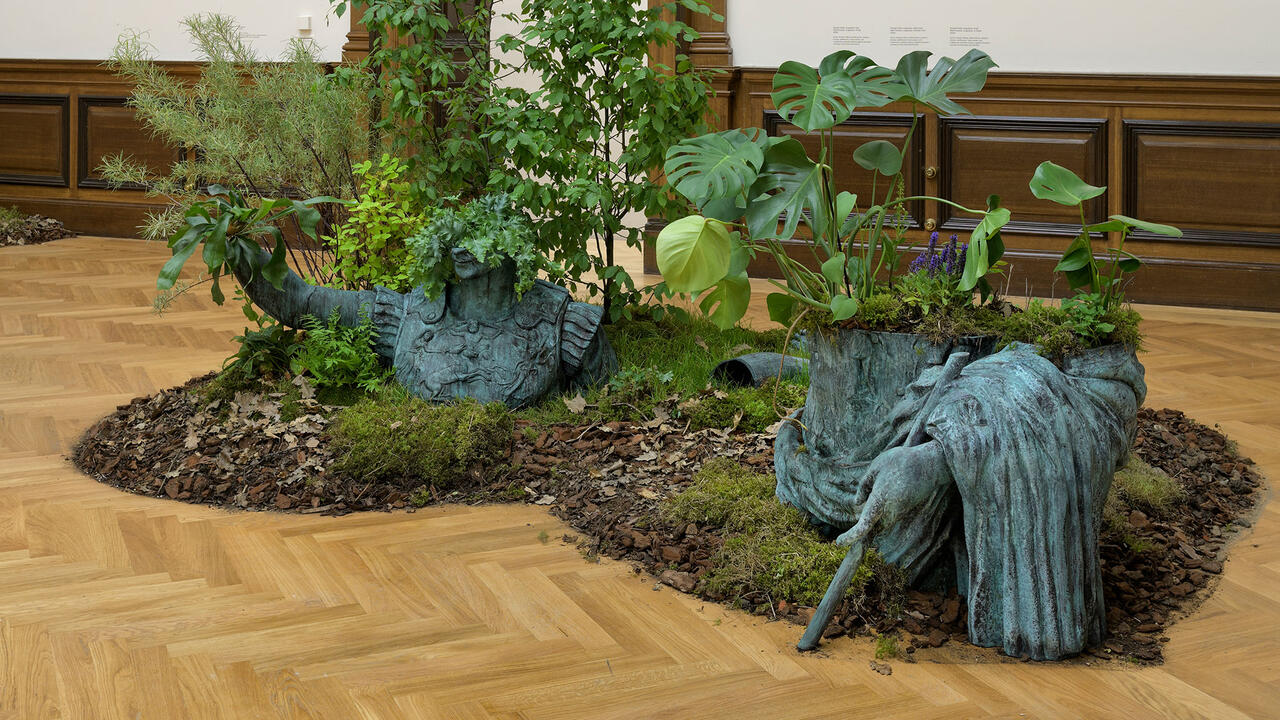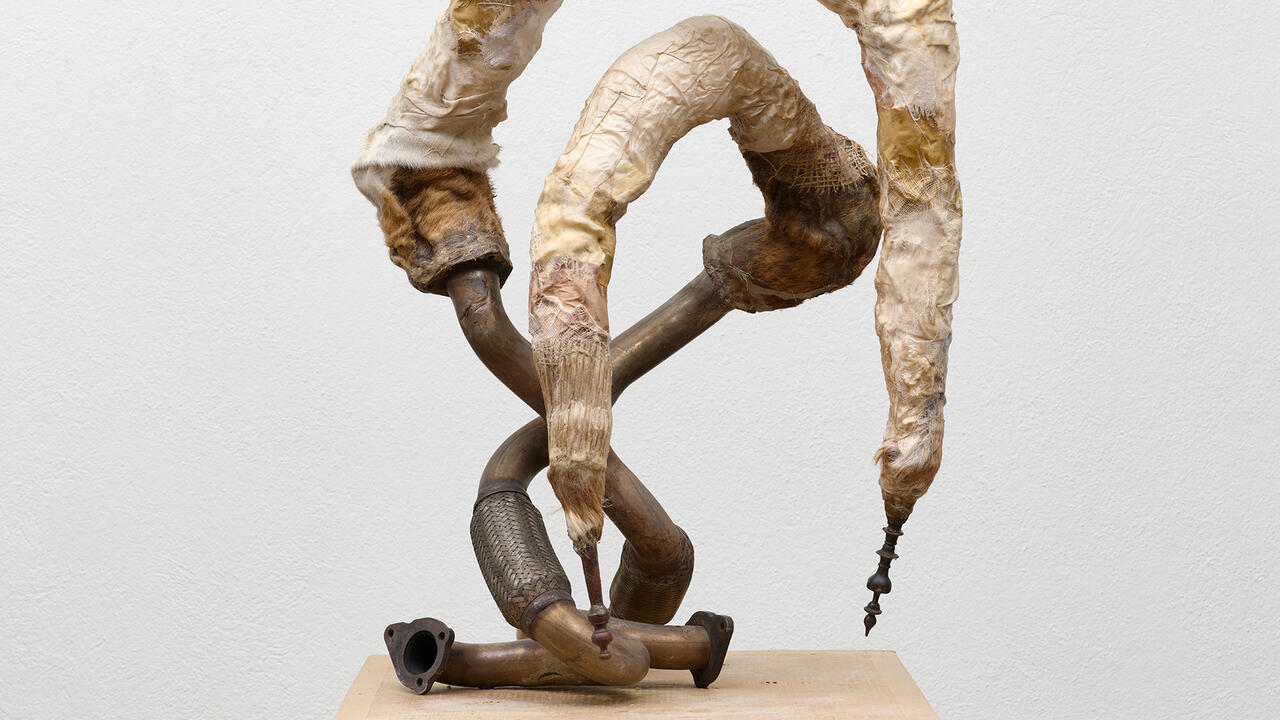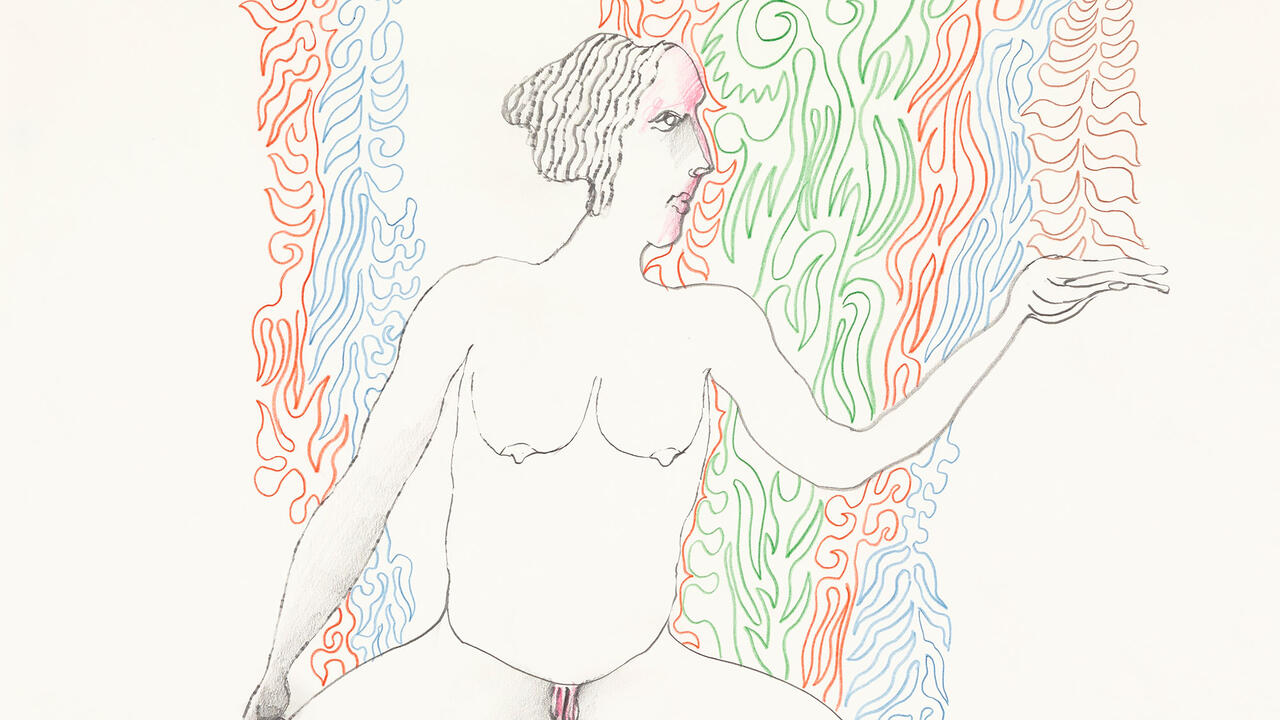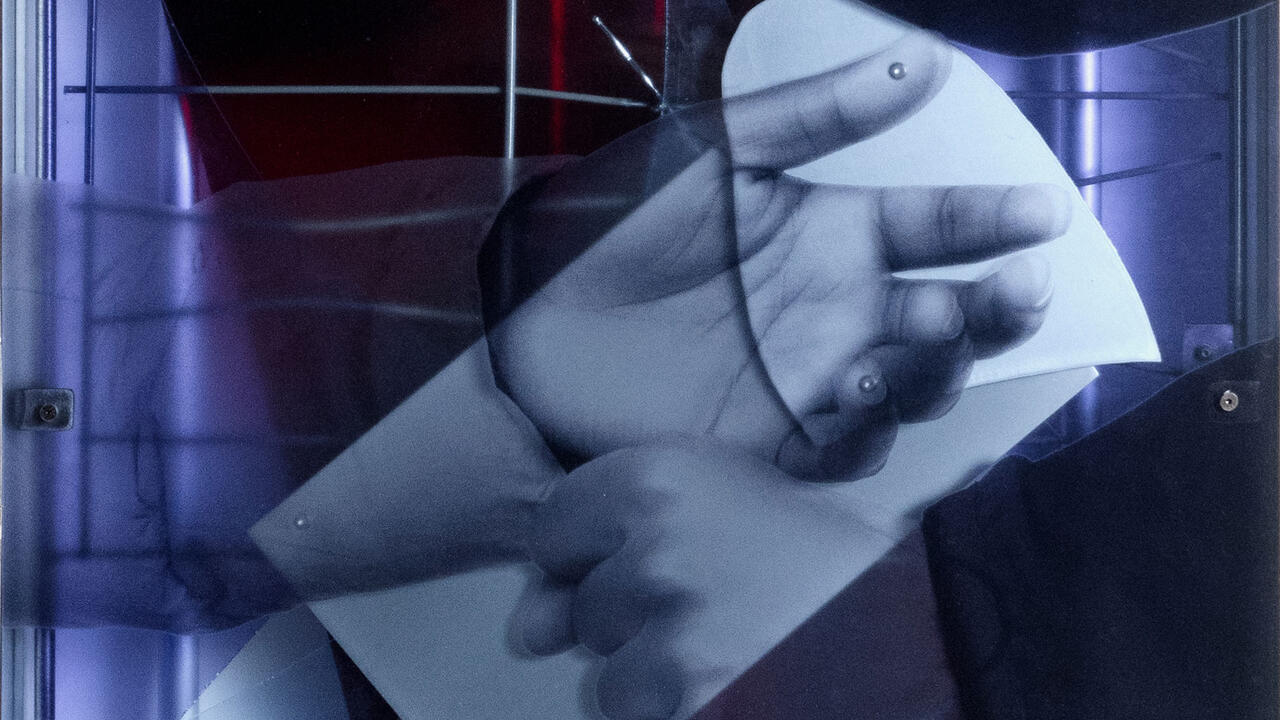Alice Neel’s Portraiture and Politics
A small retrospective at Centre Pompidou, Paris, strikes a balance between the artist’s unique brand of expressionist figuration and her activism
A small retrospective at Centre Pompidou, Paris, strikes a balance between the artist’s unique brand of expressionist figuration and her activism

I was ready to be disappointed by ‘Alice Neel: Un regard engagé’ (An Engaged Eye). Firstly, the small retrospective of the American painter’s work, currently on view at the Centre Pompidou in Paris, is located on the mezzanine level – not on the sprawling sixth-floor spaces usually reserved for the museum’s prestigious blockbuster exhibitions. Secondly, Neel was not just any American artist: she was a committed, card-carrying member of the American Communist Party. A quick survey of Neel’s institutional exhibition history – from her inclusion in ‘Women Artists, 1550–1950’ at the Los Angeles County Museum of Art in 1976 to her major solo retrospective, ‘Alice Neel: People Come First’, at New York’s Metropolitan Museum of Art in 2021 – indicates that her work is often reduced to either belonging to a tradition of women artists interested in women’s things or as a mere aspect of her activism. Given this track record, I didn’t see why the Pompidou show would be any different. Thankfully, I was wrong. The exhibition strikes a balance between showcasing Neel as an artist of her time and as the author of her own particular brand of expressionist figuration.

Two works by other artists open the show. The first is a larger-than-life, black and white photograph of the artist by Robert Mapplethorpe (Alice Neel, 1984). The second is a piece by Jenny Holzer, Alice Neel Teal (2005), which presents a declassified copy of Neel’s FBI file – hard evidence that the US government surveilled the artist for her communist sympathies. Together, these works underline both Neel’s importance to proceeding generations of American artists and the major themes of her work: portraiture and politics.
Despite its relatively modest scale, the exhibition spans the whole of Neel’s career, from her early oil sketches in pre-revolutionary Cuba to her 1982 portrait of porn star-turned-activist Annie Sprinkle.

Angela Lampe, the exhibition curator, attempts to divide the works into two sections: ‘Class Struggle’ and ‘Gender Struggle’. However, this division is imperfect, as much of the work could equally belong to both categories. In the first, we find the paintings that Mike Gold, founding editor-in-chief of The New Masses (1926–48), called (somewhat hastily) ‘social realist’. These are scenes of strikes and protests, many of which show women and people of colour, such as Uneeda Biscuit Strike (1936) and Nazis Murder Jews (1936). In the 1950s, Neel’s work shifted from depictions of the crowd to less blatantly politicized portraits of individuals that the artist encountered during daily life in New York. One of the more moving is James Hunter Black Draftee (1965). Neel represented Hunter with a completed head and hand – the result of the subject’s first sitting – but the rest of his body is only outlined. Tragically, there was no second session as Hunter was drafted to Vietnam and never returned. Neel’s decision to leave the painting unfinished is a moving and haunting homage to a stranger’s fate.

Indeed, rather than two sections divided by a wall – an unfortunate Cold War metaphor if ever there was one – the exhibition could be viewed as an expansive survey, a growing family or an inventory of universal humanism. There is something about the way that Neel depicts bodies – often fat, flaccid and wrinkled, circumscribed with heavy black contours and modelled with undulating impasto brushstrokes – which almost seems to caress their flickering forms into being. Her fearless and loving approach to rendering the human figure in all of its beauty, ugliness and diversity speaks to Neel’s warmth, love and openness towards others. To that end, Pompidou’s mezzanine-level gallery is perfect for this small, dense retrospective. Connected to the pedestrian streets outside by floor-to-ceiling windows, this space gives visitors the impression of being, like Neel’s painting, among and with the masses of humankind.
‘Alice Neel: Un regard engagé’ runs at Centre Pompidu, Paris, until 16 January 2023
Main image: Alice Neel, Peggy, 1949, oil on canvas, 45 × 91 cm. Courtesy: © The Estate of Alice Neel, James Kenyon and L.A. Louver; photograph: Malcolm Varon






















